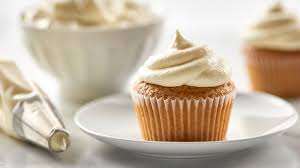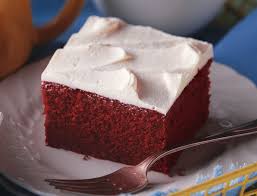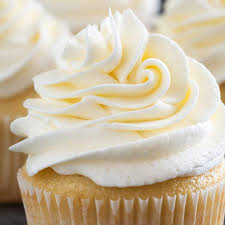The frosting on the cake is what lures us to eat the cakes. Made from butter, cheese, chocolate, egg whites, cream, sugar, vanilla flavors, and other creative innovations, frosting is a sinful delicacy, indeed! If you are health conscious, you can sometimes opt for natural sweeteners like agave nectar, raw honey, stevia, etc., instead of sugar. However, the truth is that you cannot make frosting healthy, as much as you try.
Can Cats Eat Frosting
Before we tell you if cats can eat frosting or not, the basic point you need to remember is that cats cannot realize any sweetness in the dishes they eat. They are attracted to sweet dishes only because of their fats and calories, not for their sweet taste.
So now, comes to the main question of can cats eat frosting. No, not! Cats shouldn’t eat frosting, regardless of the ingredients used in it. Frosting contains a lot of sugars, fats, dairy products, and additional flavors. Even if the frosting is sugar-free, you should still refrain from feeding this to your cats, as they can cause toxic reactions in the felines. If the frosting contains even a small amount of chocolate in it, you should keep cats far away from it, as chocolate can be too dangerous for cats.
Toxic Ingredients in frosting

Different people make different types of frosting. While the additional flavors may change here and there, the basic ingredients like sugar, butter, and cream remain the same. If you are a cat owner, you will know that these ingredients are bad for cats. As obligatory carnivores, cats need foods rich in proteins, which would be mostly meat and seafood. However, frosting is rich in carbohydrates. Overconsumption of carbohydrates can lead to obesity in cats. In the long run, obesity can lead to more serious health issues in felines, and we will discuss them later.
Xylitol
Sometimes, people use artificial sweeteners like xylitol for frosting. While they use it because it contains less sugar content than natural sugars, it is still dangerous for cats. According to some recent studies, even a very small amount of xylitol can prove to be lethal for cats. So you should keep your feline friends away from all types of frosting.
Butter
Most cats, aged two months and above, are lactose intolerant. So, they cannot handle the lactose component in milk and milk-based products. Frosting contains a reasonable amount of butter; therefore, cats are prone to digestive issues, even if they lick a little frosting occasionally. Cats need a special enzyme in their bodies to digest the lactose in milk and dairy products. However, this enzyme is produced in their body only till they are about two months old.
This is the reason why kittens can drink their mother’s milk comfortably without any digestive issues. When cats stop drinking their mother’s milk, they start eating other foods and treats. So, their body stops producing the special enzyme needed to digest lactose. As a result, adult cats are prone to digestive ailments, diarrhea, vomiting, lethargy, and reduced appetite when introduced to dairy products.
Vanilla Extract

You might know that vanilla extract adds a beautiful taste and texture to the frosting. You love to eat the fresh flavors of vanilla frosting before you bite into the cake. However, when you have cats at home, you should know better than giving them vanilla frosting.
Vanilla extract, which is used in frosting, contains about 30% alcohol, a very toxic ingredient for cats. According to studies, consumption of foods containing alcohol can prove to be lethal for cats. Consumption of alcohol can damage a cat’s nervous system and brain. However, the good thing is that cats are very sensitive to the smell of alcohol. Alcohol poisoning happens in very rare cases in felines, as cats voluntarily stay away from alcohol-based goods.
Here are the symptoms to watch out for to know if your cats have been poisoned due to alcohol:
- Vomiting
- Inability to stand
- Wobbly Movement
- Falling over repeatedly while walking
- Drowsiness and lethargy
- Confused reactions
- Overall reduction in its reflexes
Take your cat to the veterinarian immediately when you notice these symptoms. If not treated quickly, these symptoms can lead to brain damage and death in some cases.
Chocolate
Sometimes, chocolate flavors are added to make the frosting look richer and taste creamier. Please remember that cats should never be fed chocolate frosting because chocolate can trigger toxic reactions in cats. It contains two main ingredients – theobromine and caffeine. Both these ingredients are harmful to cats. Chocolates shouldn’t be given even as treats for cats. Studies have proved that even a small bit of chocolate can make cats fall sick. Overconsumption of chocolate can result in fatalities due to liver damages in cats.
Is the cake safer than frosting for cats?
As a cat owner, you may wonder if you can feed cakes to your felines. The answer is no. Cakes also contain large amounts of sugar, artificial colors, chocolate, cream, and additional flavorings in the form of fruits and nuts. All of these are toxic to the cats. The digestive system of cats is not equipped to handle these ingredients. So, your cats will fall sick when they have too much cake.
Final Word
You can always do without the cakes and frostings if you want to celebrate important occasions with your cats. It is a good thing that even cats aren’t naturally attracted to sweet foods. Instead, you can organize a healthy treat for them using a blend of protein-rich items like meat, seafood, fruits, veggies, and a small number of grains. Your cats will love this treat.
Frosting contains toxic ingredients for cats, such as cream (or butter), vanilla extract, sugar, chocolate, and more. Since they are carnivorous, cats cannot handle too many carbs, leading to severe gastrointestinal issues, vomiting, diarrhea, etc. So keep cakes and frosting far away from cats, as these items shouldn’t be given to the felines, even as treats.
